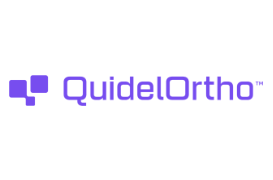
Acute Pharyngitis: Advances in Pathogen Identification & Diagnosis
Title: Acute Pharyngitis: Advances in Pathogen Identification & Diagnosis
Date: October 25, 2023
Time: 01:00 PM ET
Presenters: Bobby Boyanton Jr - MD
Brand: QuidelOrtho

Acute Pharyngitis: Advances in Pathogen Identification & Diagnosis
Non-GAS Pathogens’ Emerging Connection to Acute Pharyngitis
Acute pharyngitis is the reason for most primary care visits and the condition most often linked to antibiotic use in school-aged children. Since throat cultures take 24 to 48 hours to perform and rapid antigen detection testing (RADT) has limited sensitivity, many clinicians empirically prescribe antibiotics to prevent the sequelae associated with Group A Streptococcus (GAS).
However, recent studies suggest that non-GAS bacteria may also cause pharyngeal infections and be as prevalent as GAS within certain populations. Non-GAS bacteria are typically not detected with RADTs, so throat cultures may be needed to determine etiologies. This webinar will address the complexities of identifying the cause of acute pharyngitis and summarize emerging clinical data on non-GAS pathogens, current testing methods, and the potential role of point-of-care multiplex molecular testing for pharyngeal pathogens.
Learning Objectives
This webinar will help you:
- Discuss pathogens that cause pharyngitis
- Review emerging pathogens that may also causeacute pharyngitis
- Evaluate attributes of multiplex molecular testing for pharyngitis
- Identify benefits of point-of-care, patient-centered diagnostic testing and workflows
Fisher Healthcare is approved as a provider of continuing education programs in the clinical laboratory sciences by the ASCLS P.A.C.E.™ Program. One P.A.C.E.™ credit-hour will be provided for this complimentary basic level program.
Presenters

Bobby Boyanton Jr
MD
Dr. Boyanton is a professor of pathology at the University of Arkansas for medical sciences and pathologist-in-chief and medical director of molecular pathology at Arkansas Children’s Hospital (ACH). He oversees all aspects of clinical laboratory and point-of-care testing programs for ACH-affiliated hospitals and clinics, and his expertise lies in molecular-based detection of infectious disease pathogens within these settings.
